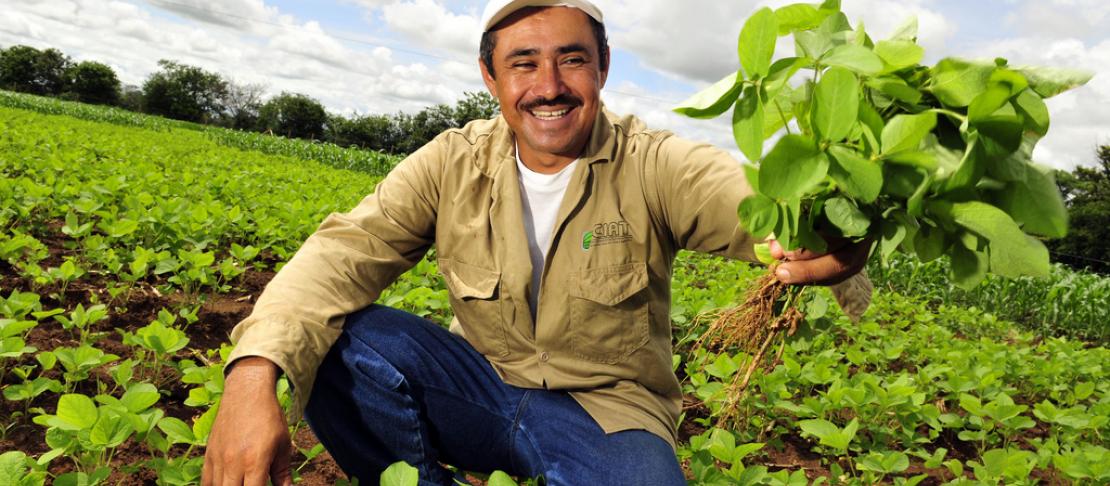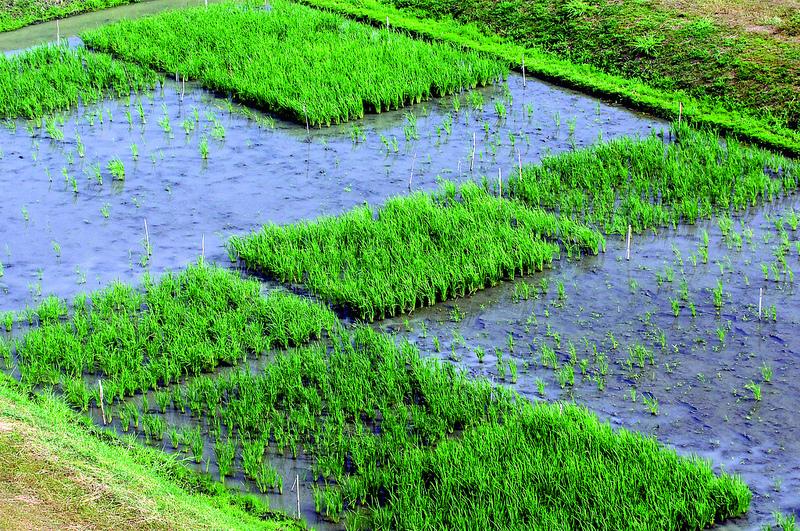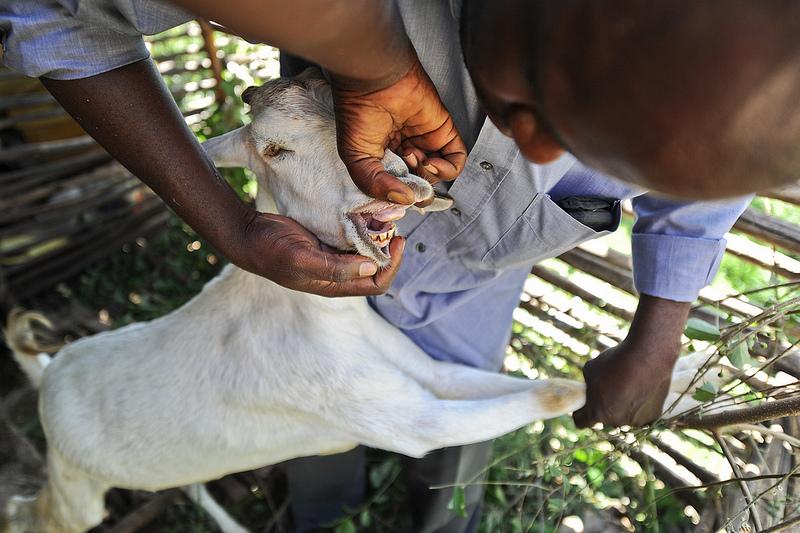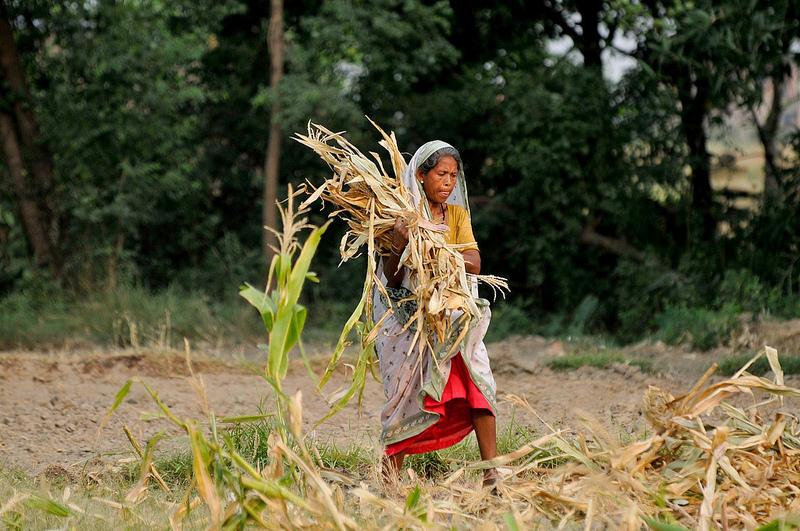The true power of agriculture and climate research

Today marks a day of celebration, as CGIAR hits a major milestone in its work. In just five years, CGIAR has doubled its donor funding from 500 million to one billion USD for its research and development activities.
This signals major confidence from donors in CGIAR and its ability to tackle major global development challenges. As CGIAR has a proven track record in providing large-scale development impacts with few investments, donors are now realising the power of agriculture research in reducing hunger, malnutrition and sustainably eradicating poverty.
For more than 40 years, CGIAR and its partners have transformed the lives of hundreds of millions of people with the tangible outcomes of agriculture research, including improved crop varieties, sustainable farming methods, new fish strains, novel livestock vaccines, climate-smart solutions, and incisive policy analysis.
As an example, drought tolerant maize has increased farmers’ yields by 20-30%, benefiting 20 million people in 13 African countries. In addition, we have also witnessed the development of "scuba rice", which can survive under water for two weeks, is protecting the harvests, incomes, and food security of poor farmers and consumers across monsoon Asia.

Rice that can survive weeks under water has been developed thanks to agriculture research and devoted funding.
Photo: IRRI
The CGIAR Research Program on Climate Change, Agriculture and Food Security (CCAFS) is part of this transformation. Together with partners we are making a difference to farmers in our five regions: South and Southeast Asia, East and West Africa and Latin America.
As our research is unfolding into action on the ground, we are continuously developing ideas and partnerships that will help us scale-up efforts, so that in the end resilience and climate adapability will not be for a chosen few but accessible to millions of farmers around the world.
Here are some examples of the work we do that are assisting farmers adapting to climate change and managing climate related risks.
Targeting all levels - at the same time
In East Africa, our regional team has been working tirelessly with implementing climate-smart villages in Nyando Kenya, as well as in Hoima Uganda and Lushoto in Tanzania.
We are already seeing transformations among farmers and their activities. Rachel Kyte, from World Bank Sustainable Development Department, visited the Nyando village site earlier this year and came back sharing the story of John Obuom and Poline Achieng’ Omondi.
John and Poline are farmers participating in the climate-village activities and have as a result purchased fast-maturing goats and heat-tolerant sheep. Together these decisions have helped to improve the family's income, as they now have plenty of milk and can sell their animals with good profit. In parallel, the family has built rainwater ponds that reduce erosion and provide irrigation, and planted heat-tolerant maize that is ensuring food year round. Scaling up these model farms and getting more communities involved are high on the CCAFS East Africa agenda right now.

Fast-maturing goats are helping farmers in kenya increase and diversify their incomes while adapting to climate change.
Photo: K. Trautmann
While action on the ground is crucial, it is as important to reach out to policy makers. Our East Africa team is working directly with high-level negotiators to find ways for agriculture to be a part of climate adaptation plans. They are providing the knowledge, such as how intercropping coffee plants with bananas can provide better yields in the region or how carbon-projects can benefit smallholder farmers in Africa.
The aim is not only to inform the process, but to be a credible regional information source when it comes to agriculture adaptation in the context of climate change.
By teaming up with local partners our researchers have also been able to reach more than ten million Kenyan farmers with climate-related information. Our Theme Linking Knowledge to Action is providing research and expertise to the TV program Shamba Shape up, a show that helps Kenyans farm more efficiently while adapting to climate change.
Trusted champions in South Asia take the lead
Local female leaders in South Asia have specifically been targeted to receive trainings related to gender, agriculture and climate change. The participating trainers are now actively teaching others, both men and women, about climate change and agriculture issues while incorporating gender aspects within farming.
Trainer Jashuda Kumari has incorporated issues of climate change and food security into the regular village-level meetings she holds: “I realised that there was a huge demand among women to know more about these issues,” says Jashuda. “After the training, many other women from different villages came to our office or called us up to know more about climate change related issues and specific programmes that support this.”
Now, more than 700 women farmers have been introduced to innovative and organic farming via the training activities.
We believe that the training of trainers is a smart way of reaching more people, utilizing existing networks and the voices of trusted community leaders.

Our south asia team is working with the private sector in nepal to scale-up successful climate-smart practices in rural villages. Photo: N. Palmer
Another focus of our village-activities in South Asia has been on climate insurance schemes, that are designed to help farmers when the rain fails or the storms march in.
Together with partners we have already helped farmers receive their first payment when the weather wasn’t delivering the anticipated rains. These activities are aimed to be implemented in new sites and scaled-up by partners and the private sector in Nepal.
In Senegal, CCAFS team on Managing climate risks is working closely with local partners and farmers in making sure climate information and services are linked to the true needs of farmers and that they are understandable.
Watch video: Putting climate information into farmers’ hands.
Farmers, especially women, are offered trainings on climate-smart agriculture practices, where they are shown how to diversify their incomes – thus moving beyond agriculture while improving existing practices.
As the earth's climate is a'changing, we need farmers to adapt to new challenges while reducing emissions. We already know that climate-smart agriculture practices are helping to improve the lives of millions. Therefore we are certain that rural communities can become climate resilient through applying these tried and tested climate-smart activities.
For the upcoming years we will move ahead and implement what we’ve learned so far, while scaling up long-term, climate-resilient and low-emission projects for farmers across our regions.
Social change doesn't come easy
We do know that real impact from development efforts doesn’t come easy. Impact, or social change, is the result of long-term investments in time, prioritized fundings, innovations and tools, social learning and demand-driven research. This is only to mention a few of the ingredients needed to transform a rural community into doing farming differently to try and adapt to an uncertain and variable climate.
Our focus on creating actual impact is a part of a wider structural process, where we are now developing research flagships, together with impact pathways on how to achieve the objectives we strive towards. Do you want to be a part of this interesting transition? Apply to one of our two open Calls for Concept Notes related to two of our Flagships.
Cecilia Schubert works with communications for CCAFS Coordinating Unit. For more program updates, follow us on Twitter: @Cgiarclimate.
